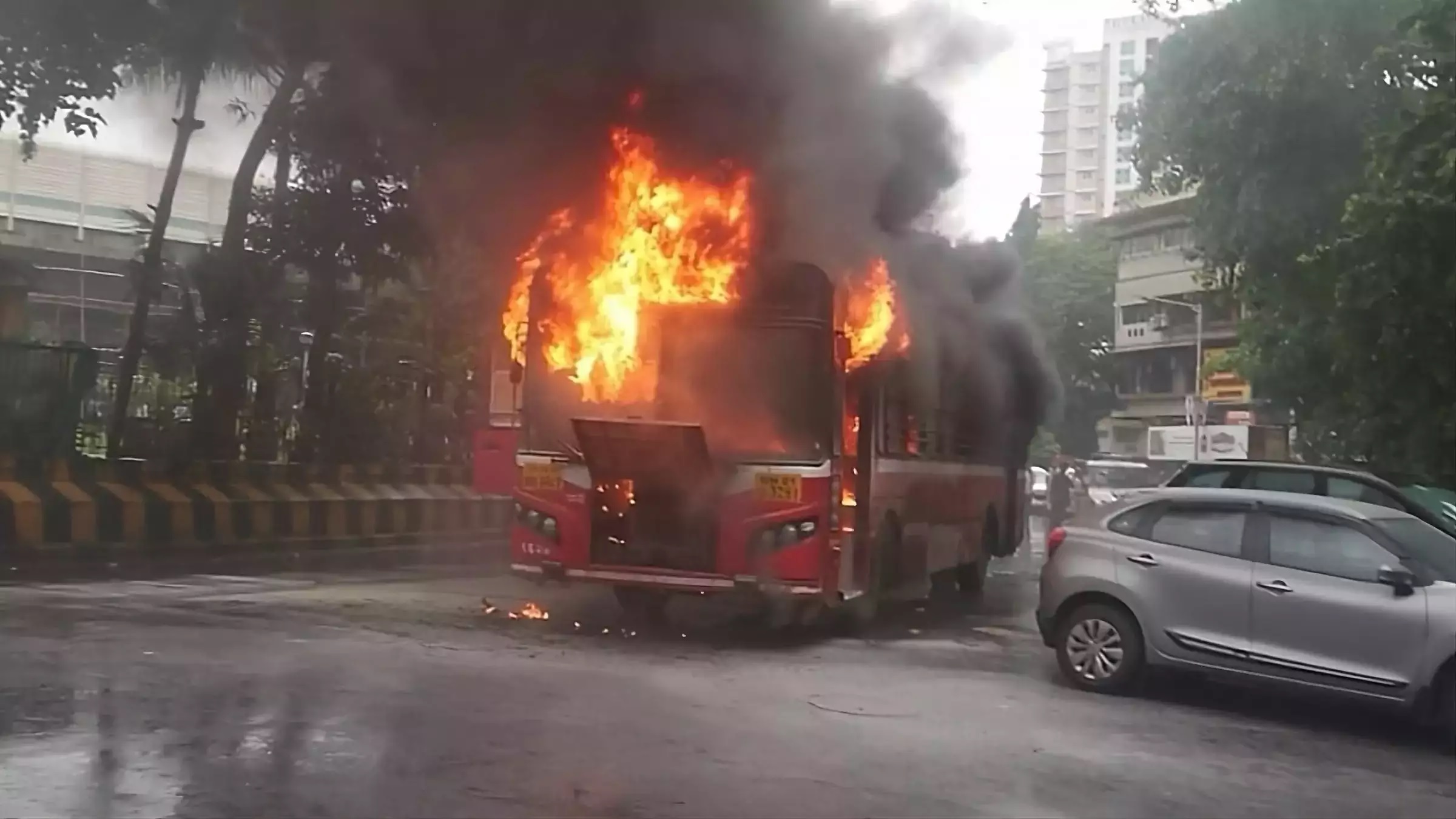Source : PTI | In February, BEST had kept 400 wet-leased buses off the roads after three back-to-back incidents of buses catching fire. BEST undertaking provides public bus service in Mumbai, neighbouring Thane, Navi Mumbai and Mira-Bhayandar cities. It ferries over 30 lakh commuters with its fleet of around 3,500 buses, including those hired from different private contractors.
An electric bus of the Brihanmumbai Electric Supply and Transport (BEST), Mumbai’s civic transport body, caught fire during battery charging in suburban Malvani early on Friday, officials said. The incident occurred around 5 am and the blaze was doused within 15 minutes, they said, adding that nobody was injured in it.
It was a midi (medium-sized) electric bus that was being charged along with several other such vehicles at the charging bay. The fire erupted in the battery set positioned on the rooftop of the bus. After noticing it, the BEST employees immediately removed the buses parked next to the affected vehicle, so that the blaze does not spread further.
They also tried to douse it with the help of fire extinguishers in the buses, but it was not of much help, sources in the undertaking said. “The fire brigade was alerted. Its team immediately reached the spot and doused the blaze by around 5.15 am,” a BEST spokesperson said. The cause of the blaze is being ascertained, he said.
This is the sixth incident of fire involving BEST buses so far this year and third in less than three months. More than 30 passengers had a narrow escape after a BEST bus caught fire at Marol in Andheri area of the city on July 17, while a month prior to that on June 16, an electric air-conditioned bus of the transport body caught fire when it was parked in a in a depot in suburban Malvani.
In February, BEST had kept 400 wet-leased buses off the roads after three back-to-back incidents of buses catching fire. BEST undertaking provides public bus service in Mumbai, neighbouring Thane, Navi Mumbai and Mira-Bhayandar cities. It ferries over 30 lakh commuters with its fleet of around 3,500 buses, including those hired from different private contractors.
The transport body has hired electric buses on a wet-lease model, in which private operators own the vehicles besides holding the responsibility of maintenance, fuel and salaries of drivers.











